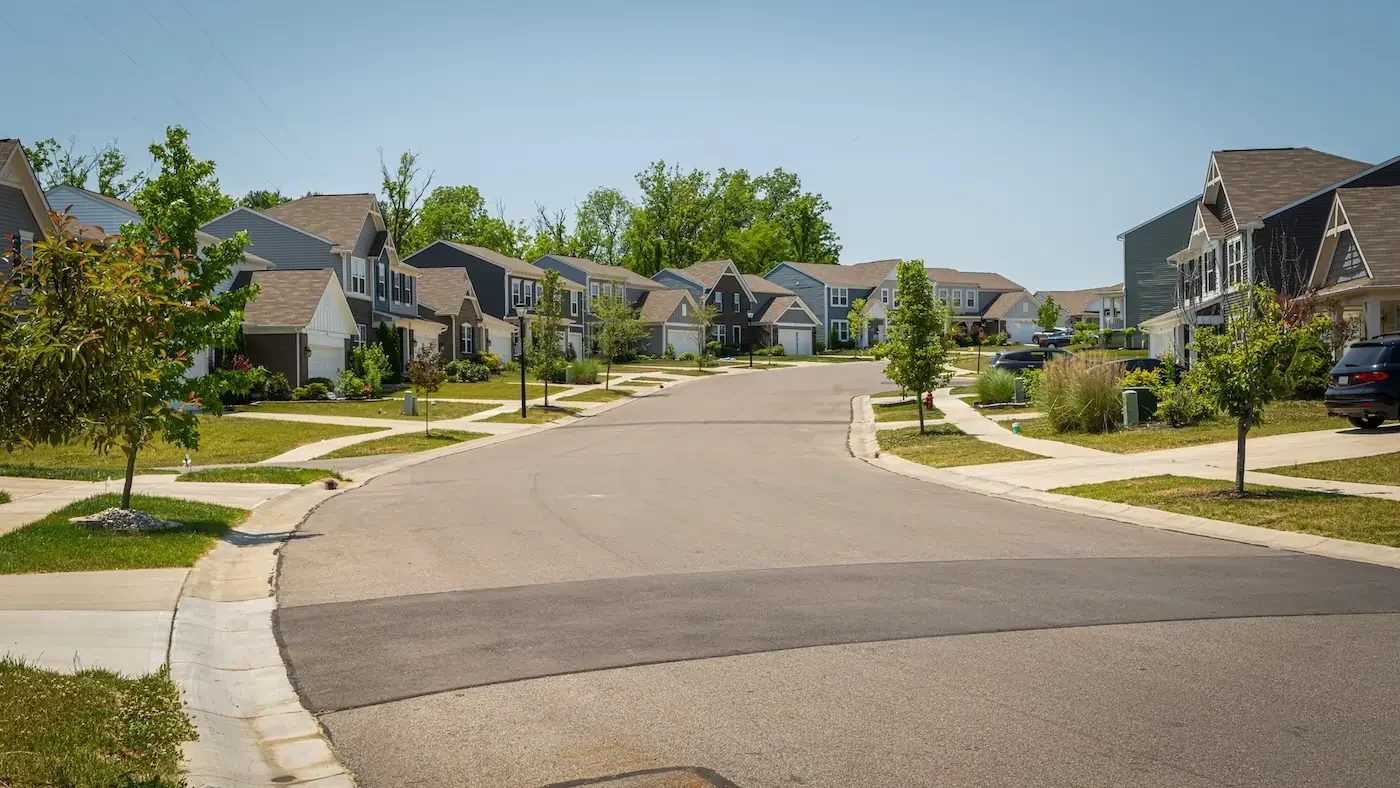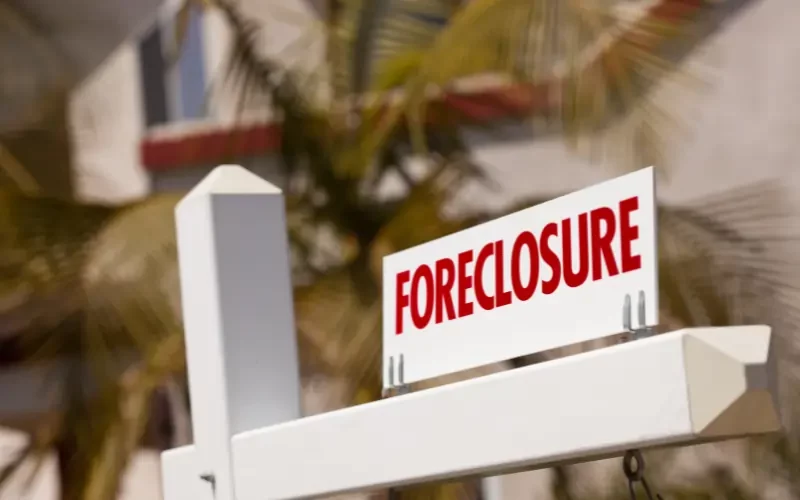Stop Foreclosure in Texas: Sell Your House Before the Auction
Is your house about to go into foreclosure? It’s a scary feeling when you get behind on mortgage payments and aren’t sure if you’re going to lose your home or not. We totally understand the stress you’re under right now, but the good news is you do have options. One option that’s still on the table is selling your house before the auction takes place. As experienced fast home buyers in Texas, we’ve helped countless homeowners avoid foreclosure and walk away with cash in their pockets instead of a damaged credit score.
The clock is ticking when facing foreclosure, and every day counts. The foreclosure process in Texas moves quickly, which can be surprising for some. But once that auction date is set, it’s show time. And that’s where we come in. We buy houses directly from homeowners, with cash, and can close within days – maybe helping you avoid foreclosure altogether.
Can I Sell My House Before Foreclosure in Texas?
You can sell your house before foreclosure. You actually have the legal right to sell up until the moment the trustee conducts the foreclosure sale. So even if you’ve received a Notice of Sale or other foreclosure notice, you still have time to do something about it.
Something important to know is that Texas foreclosures are usually run under the non-judicial foreclosure system. All that means is that your lender doesn’t need to go through the court system to foreclose on your home. Instead, they use a power of sale clause in your deed of trust. This also means that the process is faster than judicial foreclosures, and you have less time to respond.
If you’re facing financial hardships and can’t keep up with your mortgage payments, definitely consider selling before foreclosure to protect your credit. Plus, it often leaves you with more money than you’d get from a short sale or deed in lieu of foreclosure. Many homeowners we’ve worked with tried loan modification or other loss mitigation options with their loan servicer without success. Maybe you’ve considered filing for bankruptcy, but want to explore other better options first. Selling to cash buyers like us might be exactly what you need to move forward.
The Texas “First Tuesday” Rule: Understanding Your Deadline
Texas foreclosure sales happen on the first Tuesday of every month. This is known as the “First Tuesday” rule, and it’s crucial for your timing. Your lender must post a Notice of Sale at the courthouse at least 21 days before the auction.
The first Tuesday of every month is Texas foreclosure sale day. Also known as the “First Tuesday” rule, it’s important to be aware of what that timing looks like. Your lender must post a Notice of Sale at the courthouse at least 21 days before the auction can take place.
Let’s break down the Texas foreclosure process timeline:
- After you miss several mortgage payments, your lender sends acceleration notices (fancy words for formal warnings).
- The mortgage servicers file the required notices with the county
- A Notice of Sale gets posted 21 days before the auction
- The foreclosure sale happens on the first Tuesday of the month
- If no one bids higher than the debt amount, the bank takes ownership
If we’re being honest here, this timeline leaves little room for traditional home-selling methods. Working with a real estate agent typically takes 30-90 days from listing to closing, and that’s in an ideal world. Realistically, by the time you find a buyer, get through inspections, and handle financing, your auction date will have passed.
Something often not talked about is HOA foreclosures in Texas, which, yes, can happen. Homeowners’ associations can foreclose on properties for unpaid dues, and this process can move even faster than mortgage foreclosures. Ultimately, if you’re dealing with both HOA and mortgage issues, then time is really of the essence.

How to Sell a Foreclosure to Four 19 Properties (4 Steps)
Our home buying process at Four 19 Properties was created specifically for time-urgent selling situations – i.e., foreclosure. So we did our best to streamline everything to work within the Texas foreclosure timelines.
1. Get Your “Reinstatement Quote” From the Lender
The first thing on your agenda should be to contact your lender or loan servicer to get your exact payoff amount. This should also include the principal balance, back payments, late fees, attorney costs, and any other charges. In technical terms, this document is called a reinstatement quote or payoff statement.
Why is it important to get this information? Because we need to know exactly how much is owed to figure out if there’s equity in your home. You may be surprised to find out that you still have equity even when facing foreclosure. The market value of your home might be higher than what you owe, especially with a positive increase in the real estate market.
2. Receive a Cash Offer to Pay Off the Default
Once we have your payoff information and visit your property, we’ll make a cash offer based on the home’s current condition and market value, minus necessary repairs and our buying costs.
We’re real estate investors who buy properties directly, not a real estate agent trying to list your home for top dollar. This means we can move fast without financing approval, appraisals, or other delays.
The difference between pre-foreclosure vs foreclosure sales is significant. In pre-foreclosure, you still own the home and can sell it. Once the auction happens, ownership transfers, and you lose this option.
3. We Show “Proof of Funds” to the Trustee to Halt the Sale
After everybody signs the purchase agreement, we can immediately contact the trustee who is handling your foreclosure. We’ll provide proof of funds to show we can close quickly and have the money ready to go. This often results in postponing or canceling the foreclosure sale.
It is the trustee’s job to maximize financial recovery for the lender. If we’re able to close before the auction and pay off the debt, it’s usually a win-win for everyone. And for the lender, they won’t have to risk a foreclosure sale and the house selling below market value.
4. Close in Days: Loan is Paid, You Get the Remaining Equity
If you were to sell to us, our closing timeline is 7-14 days, but we do have the ability to move faster if needed. At closing, we pay off your mortgage debt directly to the lender, handle any closing costs, and you receive any remaining equity as cash.
Going about it with this route would protect your credit from the severe damage of a completed foreclosure. Although you might have late payments on your credit report, avoiding an actual foreclosure would help preserve your credit score for future home purchases.


Fill The Form To Save Your Credit and Sell Your House Before Foreclosure Hits!
Realtor vs. Investor: Racing Against the Foreclosure Clock
You really have three main options in a foreclosure situation.
1. Work with a traditional real estate agent
2. Try selling by owner
3. Sell to house buyers in Dallas or local to where you live.
Most people would think that listing with a traditional real estate agent would be the way to go, but it takes time that you just don’t have right now. The average time from listing to closing in Texas is 45-60 days. That’s assuming you find a buyer quickly, and you don’t have to do a lot to your home to get it ready to sell. You’ll also pay commission fees, potentially handle home repairs, and deal with buyer financing that could fall through.
Selling by owner isn’t any easier and usually takes longer than listing with an agent. You also may think you’d save money on commission fees, but if the buyer uses an agent, you are usually on the hook for their 2.5-3% commissions.
Short sale vs foreclosure is another consideration. A short sale happens when your home sells for less than what you owe, requiring lender approval. Yes, this can help you avoid a foreclosure, but it still negatively impacts your credit and takes months to complete.
Selling to a cash home-buying company is really the way to go. We buy houses in any condition, so you won’t have to handle home repairs or staging. We don’t charge commissions or fees. Most importantly, we can close in days instead of months.
What If I Owe More Than the House Is Worth?
In other words, you’re considered upside down on your mortgage because you owe more than what the home’s market value is. This situation is very common, especially if you bought during a peak time in the real estate market.
You can still consider options like a short sale. Another option on the table that some homeowners consider is filing for bankruptcy. Chapter 13 bankruptcy can halt foreclosure through an automatic stay, giving you time to reorganize debts. Chapter 7 might eliminate certain debts, but it doesn’t always save your home. The best thing you can do in this situation is to consult with a local attorney to help you understand these options.
A deed in lieu of foreclosure is another alternative where you voluntarily transfer ownership to the lender. Definitely think through this option before moving forward with it. Yes, it avoids foreclosure, but you’ll lose any equity you have and still face credit consequences.
Why Four 19 Properties is Your Best Option to Beat the Clock
To share with you a little bit about our company and our team, we’re local Texas investors who were actually born and raised here. We understand the urgency of foreclosure situations and all of the stress that comes along with it. That’s why years ago we started buying homes throughout Texas to help homeowners avoid foreclosure while getting a fair, fast cash offer.
Companies that will buy your house in Houston and other major Texas cities often operate differently. Some are middlemen who assign contracts to other investors. Others make lowball offers, hoping you’ll accept out of desperation.
But we’re a little bit different; we’re direct buyers with our own funds. This means no waiting for financing approval, no deals falling through due to lender issues, and no uncertainty about closing. We can provide proof of funds immediately and close on your timeline.
We’re comfortable working with mortgage servicers and trustees. And you can rest assured that our team understands Texas real estate law, including homestead exemption rules and redemption period requirements. We want to lighten your load so you can focus on your next steps.

Frequently Asked Questions About Texas Foreclosure
Can I sell if I have received a “Notice of Intent to Accelerate”?
If you got a Notice of Intent to Accelerate, you just got an early warning about what’s to come, but not the final step. The clock will start ticking, though, once you get this notice. You have 30 days to cure the default before your lender accelerates your loan and begins formal foreclosure proceedings. Honestly, this is the best time to sell because you have more options and time.
How long does a foreclosure stay on my credit report?
A completed foreclosure will impact your credit report for seven years. The effects on your credit will lessen over time, especially if you work on rebuilding your credit. Late mortgage payments also have a negative impact on your credit report, but if you’re able to avoid the actual foreclosure, you’ll be able to limit the damage.
Will I be evicted immediately after the auction?
No, you will not be kicked out of your house. Texas law requires the new owner (usually the bank) to follow eviction procedures. So you usually get a 30-day notice to vacate. If you don’t leave voluntarily, then things will be handled in court with a formal eviction. Just save yourself the trouble and work out arrangements before it gets to that point and you’re forced out.
Conclusion
If you’ve found yourself facing foreclosure, don’t get discouraged; you do have options. As a Texas homeowner, you have the right to sell your home up until the auction actually takes place. The key is acting quickly and choosing the right buyer.
As we’ve explained, traditional real estate methods take too long when you’re racing against foreclosure deadlines. Working with experienced investors who understand the foreclosure process gives you the best chance of avoiding auction and keeping any equity in your home.
Get a cash offer today and see how much you could walk away with instead of losing everything to foreclosure. Don’t wait until it’s too late. The first Tuesday of next month might be your auction date, but it doesn’t have to be the end of your options. Contact us now to learn how we can help you stop foreclosure and move forward with cash in hand instead of damaged credit and lost equity.
Get Your Free, No-Obligation Cash Offer!
Don’t wait anymore. Fill out the form below and join the growing number of homeowners who have sold their foreclosed house with us in the most simple and stress-free way.
At Four 19 Properties, we buy houses in Texas for cash and in any condition! Whether you’re facing foreclosure or any other difficult situation, we can help you! If you’re needing to sell your house fast, we are ready to buy it today! Give us a call today to learn more about what we can offer you! (817) 754-1957

